Reducing land rent, raising the quota for purchasing public cars and regulating information on the network environment of the Ministry of Public Security are outstanding policies in November.
30% reduction in land rent for some subjects in 2023
According to Decision 25/2023 of the Prime Minister effective from November 20, the subjects eligible for reduction are organizations, enterprises, households, and individuals who are directly leasing land from the State according to decisions or contracts or certificates of land use rights, house ownership rights and other assets attached to land in the form of annual land lease payments.
This regulation applies to land lessees who are not eligible for exemption or reduction, whose land rent has expired, or whose land rent is being reduced according to land regulations...
However, this reduction does not include the outstanding amount before 2023 and late payment. In case of land rent reduction according to regulations or compensation and site clearance deduction, the 30% reduction is calculated on the amount payable (if any) after reduction and/or deduction.
In April, the Government also issued regulations to extend taxes and land rents for 2023. This is the fifth time the Government has issued this policy in the context of businesses facing difficulties due to a shrinking market and a decrease in orders. In 2020 and 2021, the Government also reduced land rents by 30% for tenants affected by the Covid-19 pandemic.
Raising the quota for purchasing public cars for some positions
According to the Decree on standards and norms for the use of public cars, effective from November 10, four positions are allowed to regularly use a car without a specified price, even after retirement, namely the General Secretary, President, Prime Minister, and Chairman of the National Assembly.
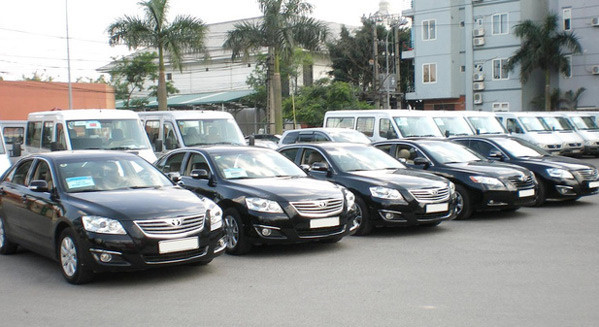
Official car of a State agency. Photo: VGP
Positions that are allowed to use cars during their working time, without a specified price, include: Standing member of the Secretariat; Politburo member; Secretariat member; Chairman of the Central Committee of the Vietnam Fatherland Front; Chief Justice of the Supreme People's Court; Chief Prosecutor of the Supreme People's Procuracy; Vice President; Deputy Prime Minister; Vice Chairman of the National Assembly.
In addition to the above positions, some positions are allowed to use cars during their working time, priced from 1.25 to 1.6 billion VND. This level increased from 330 to 500 million compared to the 2019 regulations (from 920 to 1.1 billion VND).
The positions that are allowed to use cars during their working time with a value of 1.6 billion VND include: Official member of the Party Central Committee; Head of the Party's Central Committee and agencies; Director of the Ho Chi Minh National Academy of Politics; Editor-in-Chief of Nhan Dan Newspaper, Editor-in-Chief of Communist Magazine ; Member of the National Assembly Standing Committee (Secretary General, Head of the National Assembly Office; Chairman of the Ethnic Council, Chairmen of Committees; Head of the Delegation Affairs Committee, Head of the People's Aspirations Committee).
The positions that are allowed to use cars worth VND1.55 billion include: Ministers and Heads of ministerial-level agencies; Head of the Office of the President; State Auditor General; Heads of central socio-political organizations whose operating costs are guaranteed by the state budget; Vice President - General Secretary of the Central Committee of the Vietnam Fatherland Front; Secretaries of provincial and municipal Party Committees, Party Committees of Central Blocs; Deputy Head of the Central Inspection Committee.
In Hanoi and Ho Chi Minh City, the positions of Deputy Secretary of the City Party Committee, Chairman of the People's Council, and Chairman of the People's Committee are also allowed to use cars worth 1.55 billion VND.
New regulations on providing information of the Ministry of Public Security on the Internet
Circular 45/2023 of the Ministry of Public Security regulating the provision of information by the People's Public Security Forces on the Internet takes effect from November 15. Accordingly, information provided by the police on the Internet is public, not included in the list of state secrets, professional secrets and internal secrets of the sector; in accordance with the functions, tasks and powers of the People's Public Security Forces.
Including information on the direction, management and activities of the leaders of the Ministry of Public Security; information provided to the press on issues related to public security work that the public is interested in; cases and incidents being investigated and verified by the public security agency where the provision of information is deemed necessary.
In addition, this list also includes the Ministry of Public Security's response to voters' petitions; the schedule of receiving citizens by the ministry's leaders; Interpol news; information on wanted and sought subjects; information on organizations and individuals related to terrorism; warnings and denunciations of crimes; and online public services.
Increase the rate of national excellent student awards
From November 25, Circular 17/2023 of the Ministry of Education and Training on the promulgation of regulations on national excellent student selection exams will take effect. Accordingly, the percentage of students winning national prizes will account for 60% of the number of contestants, an increase of 10% compared to before, in line with Olympic exam practices.
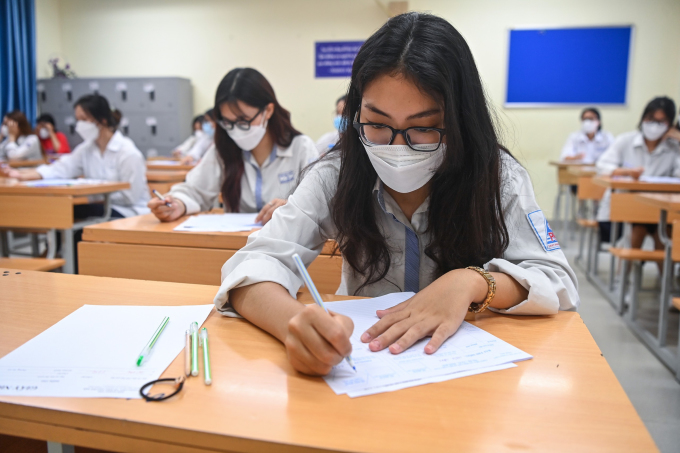
Candidates taking the high school graduation exam in Ba Dinh district (Hanoi), July. Photo: Giang Huy
The number of first, second and third prizes shall not exceed 60% of the total number of prizes; the number of first prizes shall not exceed 5%. This ratio is to ensure compliance with the regulations of the regional and international Olympic competitions. Candidates who participate but do not win a prize will be given a certificate so that they can keep their information for a long time. This is a difference from before.
Previously, the Ministry stipulated that each unit's team for each subject had a maximum of 6 candidates. In Hanoi, the team for each subject could have a maximum of 12 candidates. According to the new regulation, the maximum number of candidates for each unit in each subject is 10, while in Ho Chi Minh City and Hanoi, it is 20.
For the international Olympic team selection exam (Math, Physics, Chemistry, Biology, Informatics), the number of students summoned is no more than 8 times the official number of students taking the exam in each subject.
Another new point is that the Ministry can select candidates who did not take the national excellent student exam that year but took the regional and international Olympic exam the previous year.
Source link




![[Photo] "Beauties" participate in the parade rehearsal at Bien Hoa airport](https://vstatic.vietnam.vn/vietnam/resource/IMAGE/2025/4/11/155502af3384431e918de0e2e585d13a)
![[Photo] Looking back at the impressive moments of the Vietnamese rescue team in Myanmar](https://vstatic.vietnam.vn/vietnam/resource/IMAGE/2025/4/11/5623ca902a934e19b604c718265249d0)


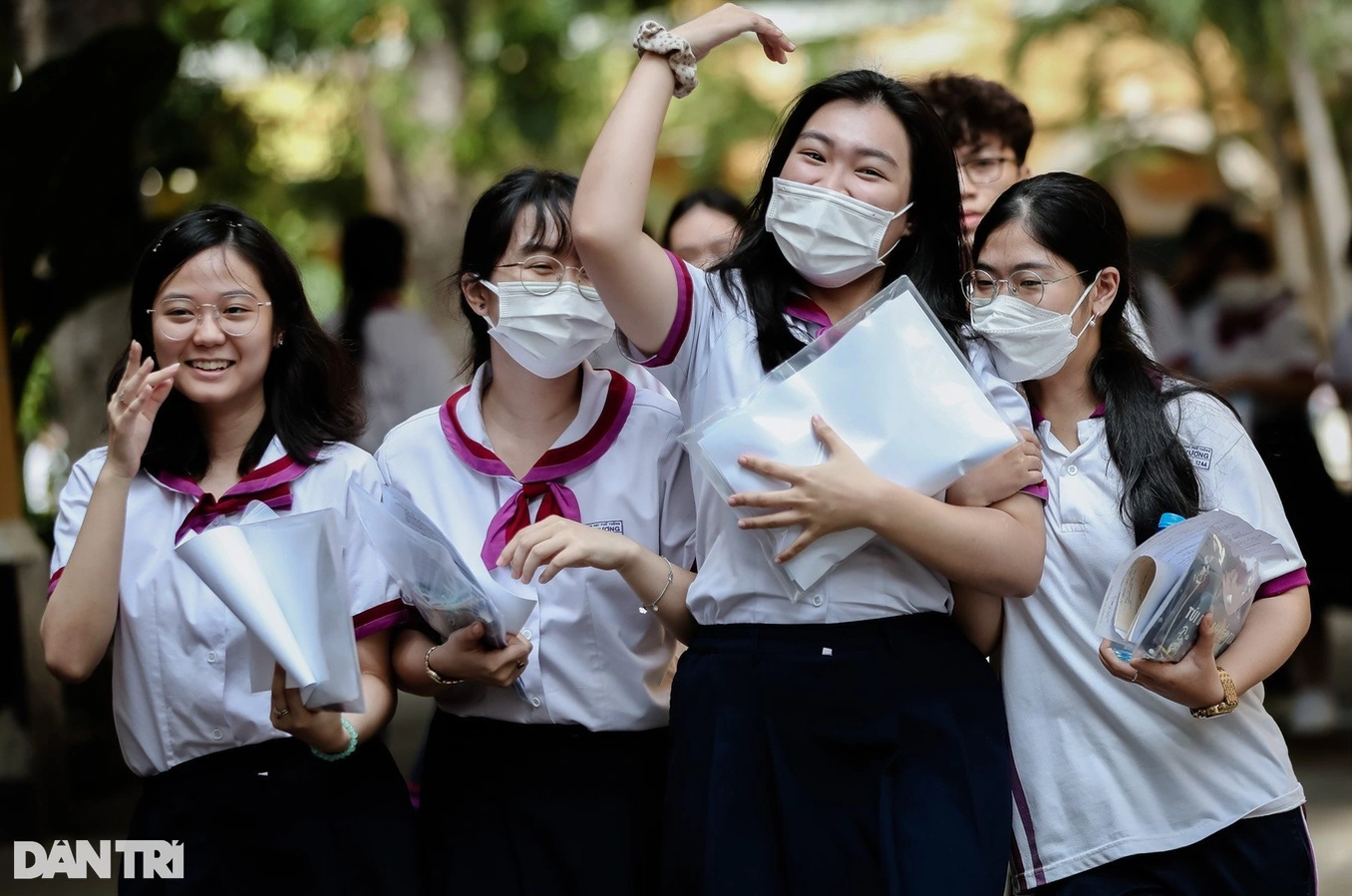

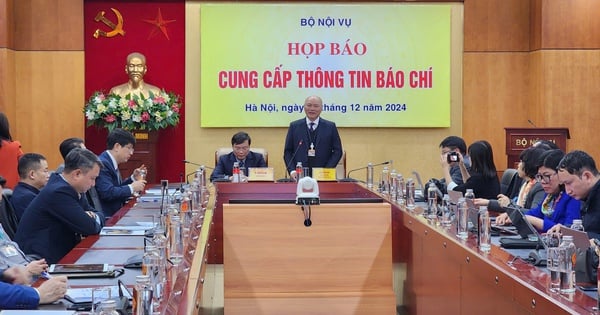

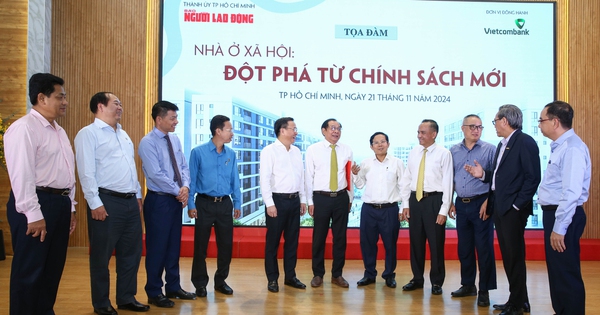
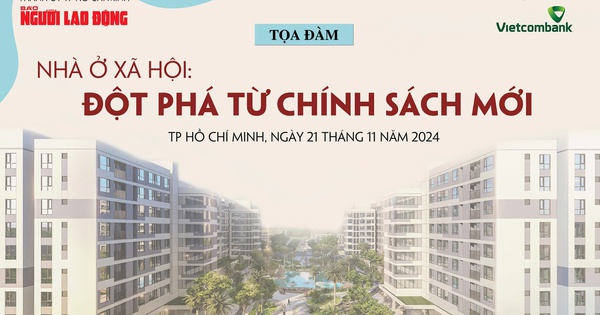
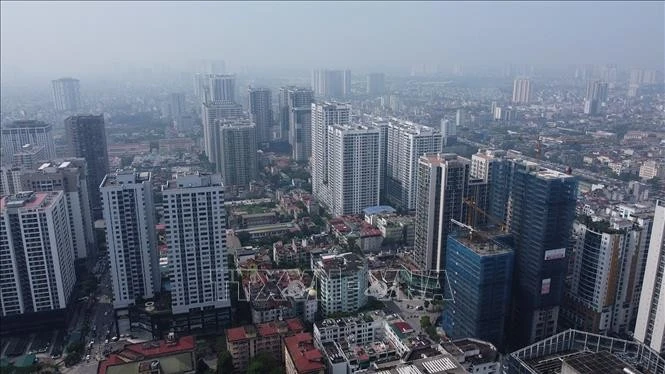


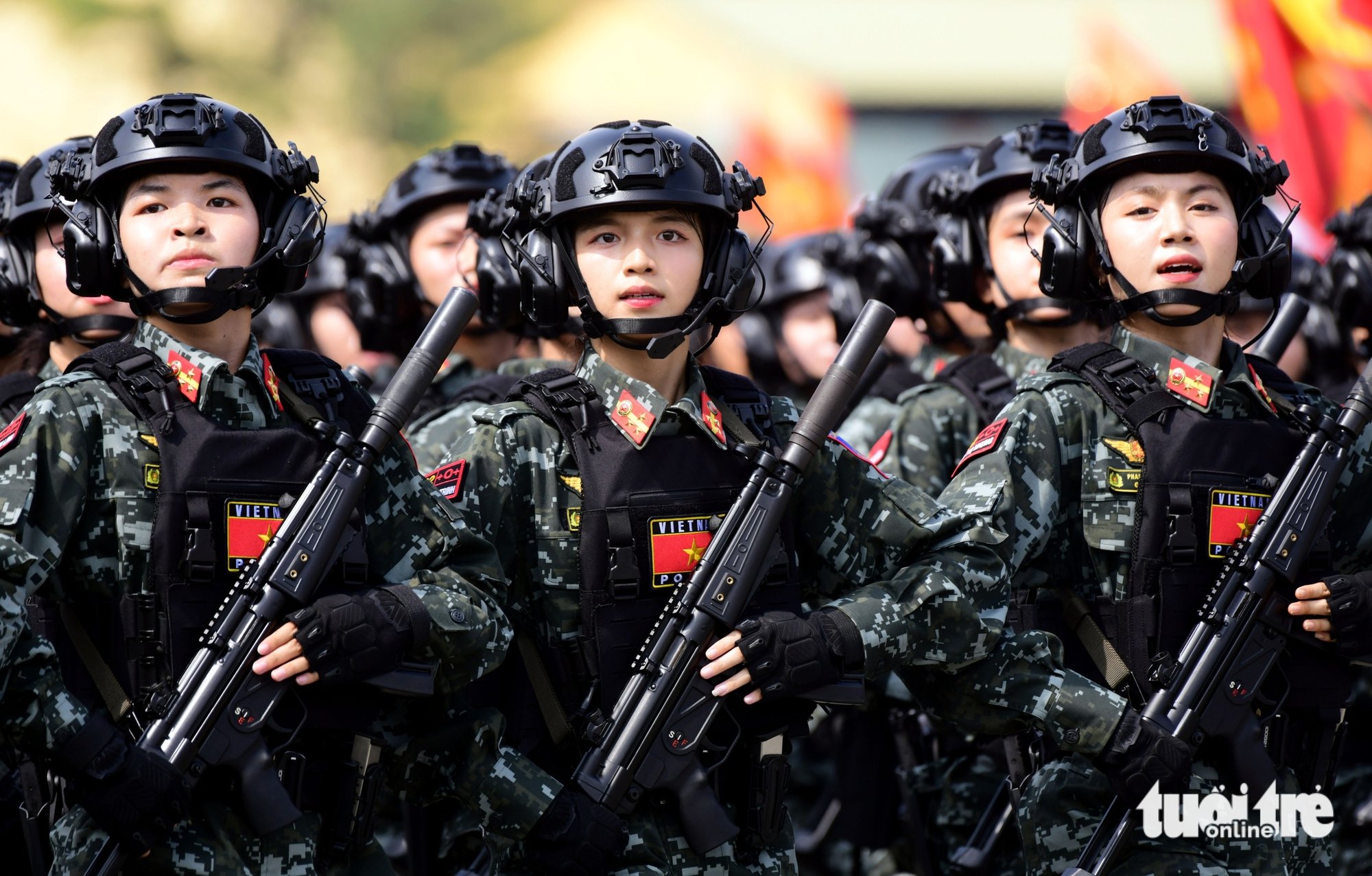

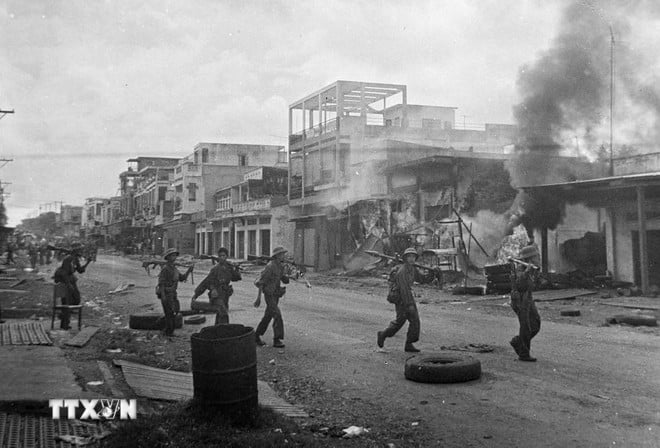
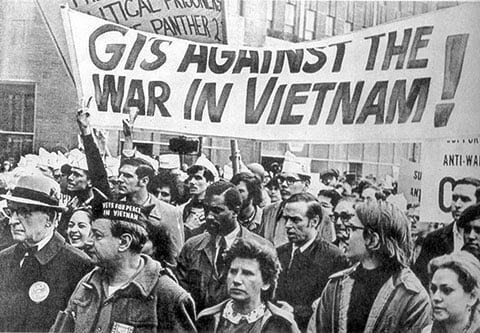
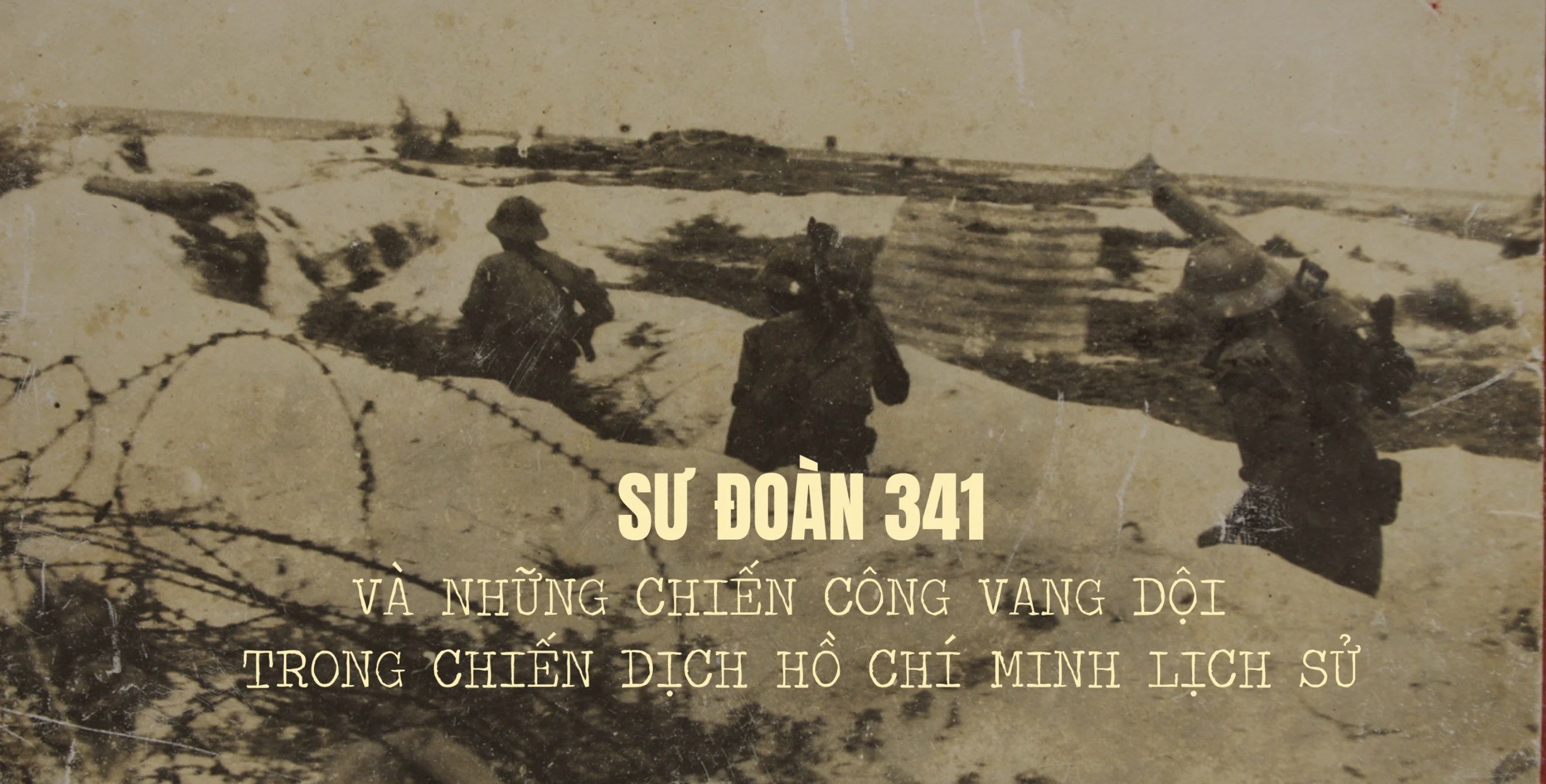
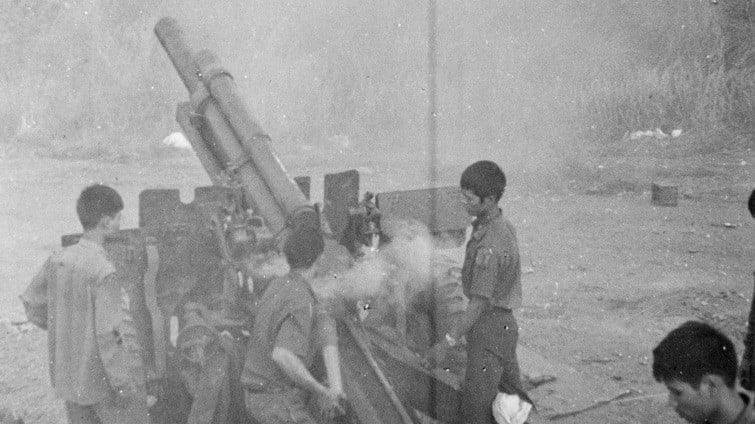








![[Photo] Summary of parade practice in preparation for the April 30th celebration](https://vstatic.vietnam.vn/vietnam/resource/IMAGE/2025/4/11/78cfee0f2cc045b387ff1a4362b5950f)








































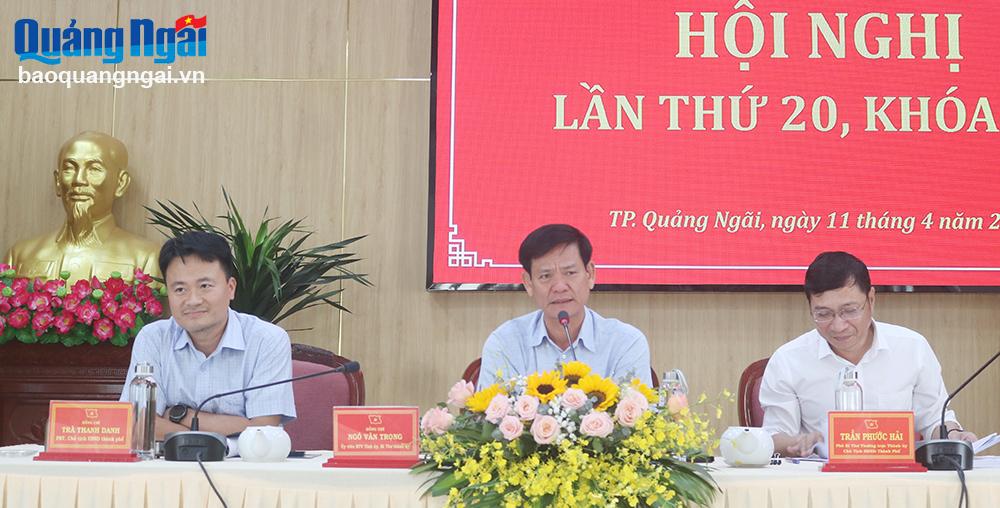
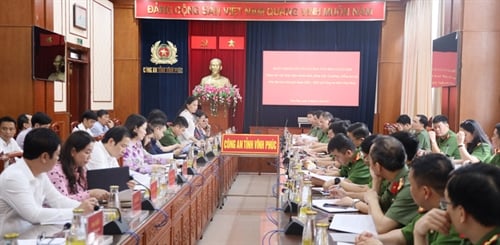
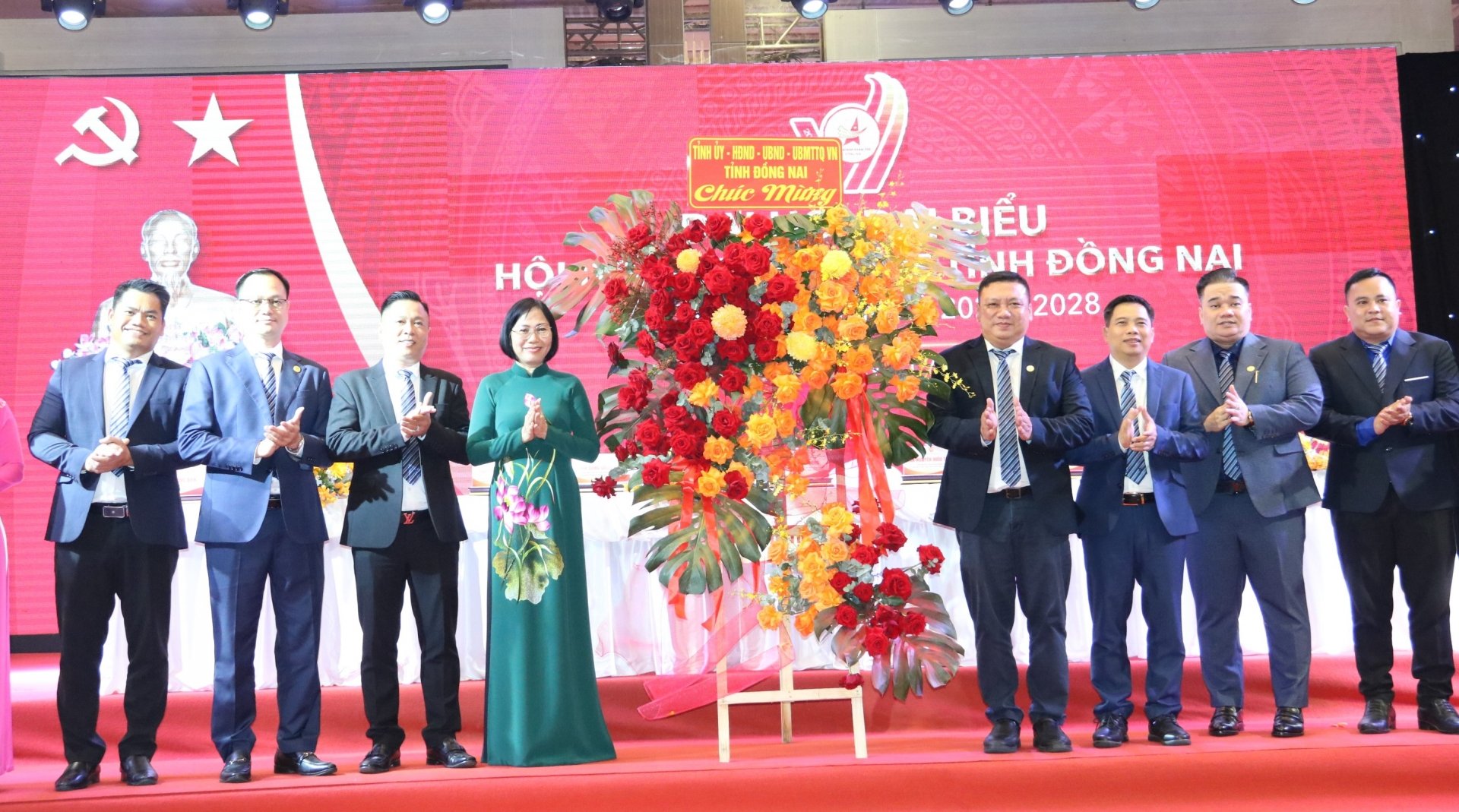

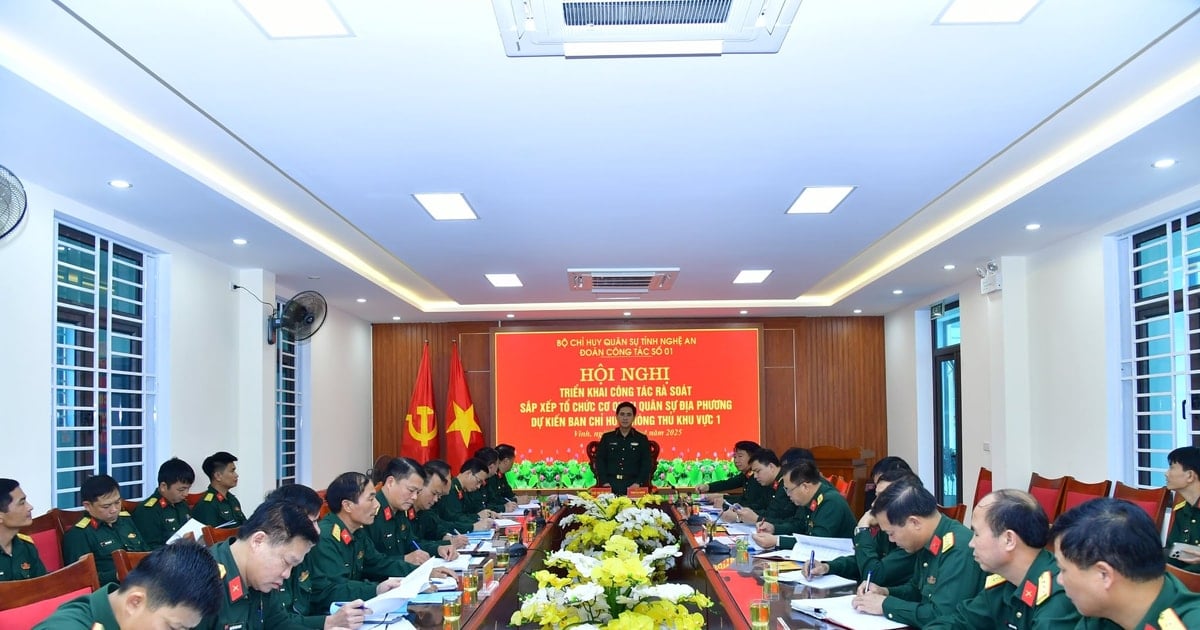

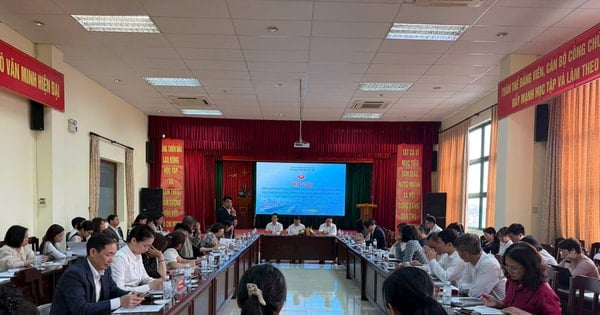













Comment (0)